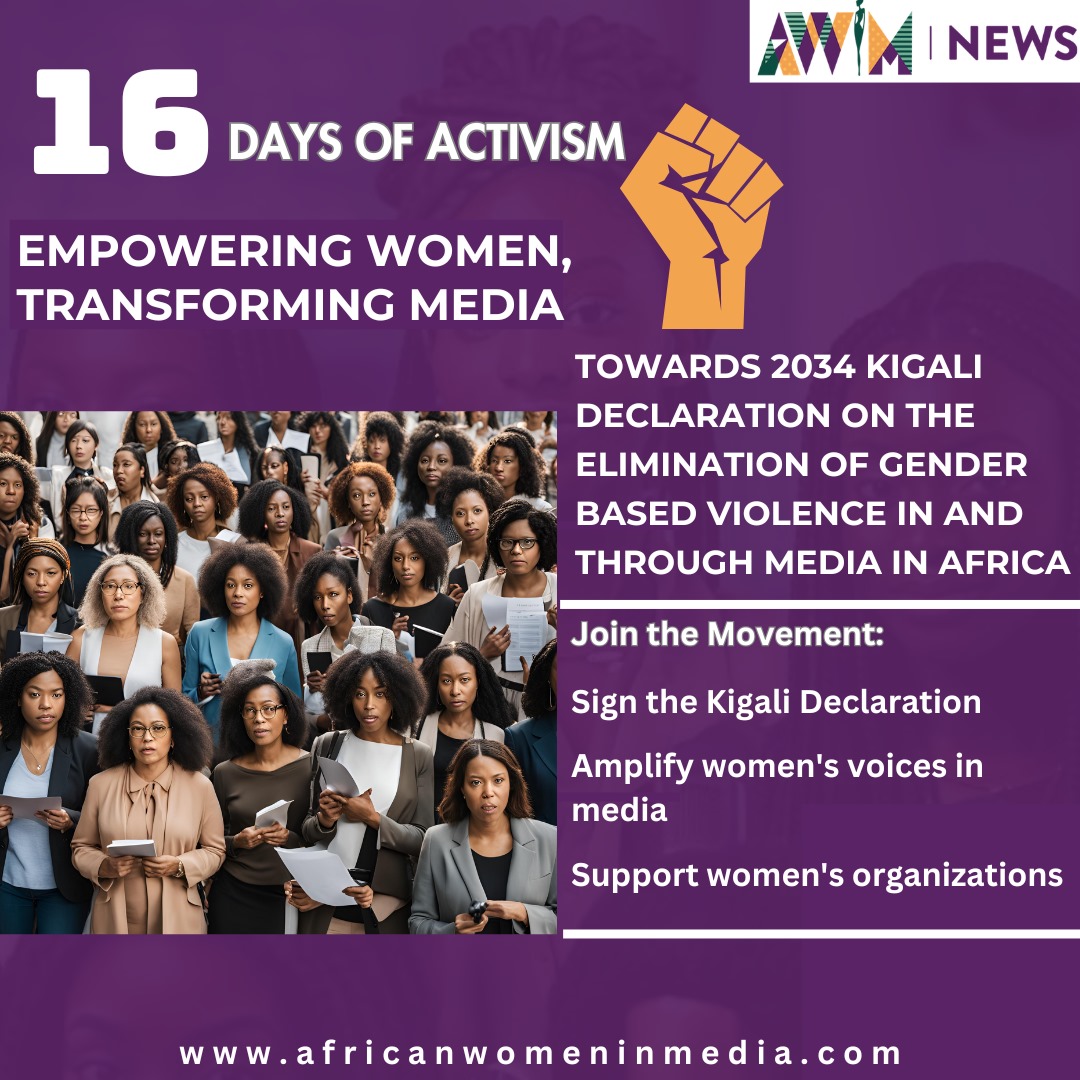Groundbreaking Workshop on AI and Technology-Facilitated Gender-Based Violence at AWiM24
Trending
Sunday May 25, 2025
Trending

Kigali Declaration (KD) signatories belong to a community dedicated to change, equipped with resource, training, and a clear framework for advancing ethical practices across the continent. Some of the signatories who have committed to addressing GBV not only in their stories but also within newsroom practices share their success stories with AWiM .

SARAH MAWERERE is a journalist with the Uganda Broadcasting Corporation (UBC), Farm Radio International, Barzarwire online Kampala, Uganda
HER WORDS
‘’My project was focused on the Gender-Based Violence (GBV) beat, raising awareness through radio programs in local languages and English. It empowered women to access credit, generate income, and reduce poverty, helping them contribute to development. Uses media to report on GBV issues across Uganda.
The Kigali Declaration Inspired continued reporting on gender issues and empowerment of women.

MWAPE ZULU KUMWENDA is a Journalist with Crown Television Zambia Lusaka, Zambia
HER WORDS
‘’My project helped to achieve gender balance in management at Crown Television, with three women and three men in leadership roles. Currently mentoring women journalists as sub-editors, making Crown Television the only media house in Zambia with gender-balanced management. KD inspired structural changes and goals for gender parity, including creating a gender policy’.

DINESH BALLIAH works with Wits Centre for Journalism, Johannesburg, South Africa
HER WORDS
‘’My Project was committed to clearing pathways for women in media, addressing structural barriers created by male-dominated spaces. KD as a teaching tool in ethics classes has helped to highlight the necessity of gender parity and ethical practices in journalism. KD formalized her long-standing work, helping to convey the importance of gender parity and ethical practices to students and peers’’
We’re not gonna spam. We’ll try at least.

Copyright 2020. African Women In Media
Copyright 2020. African Women In Media
Recent Comments